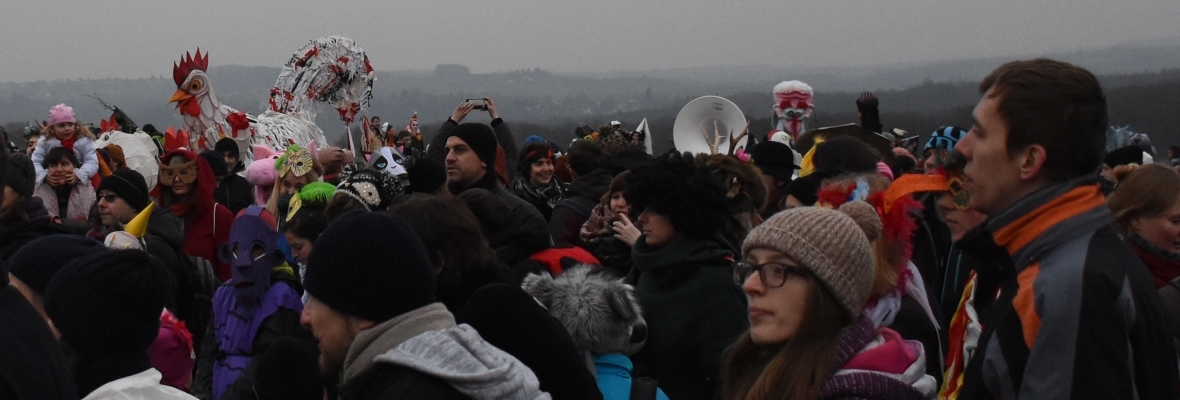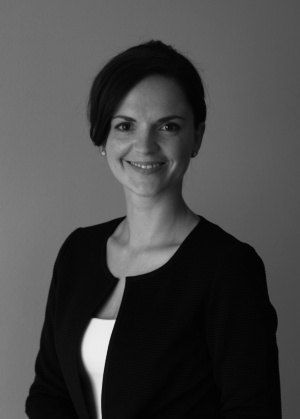Books
2023 „Ganz normale Familiengeschichten.“ Bilder von Migration und migrierende Bilder im Familiengedächtnis [“Just Ordinary Family Stories”: Images of Migration and Migrating Images in Family Memory]. Münster: Waxmann. (co-authors Nosková, Jana – Pavlásek, Michal)
2023 Zemědělské etudy. Proměny Vysoké školy zemědělské v pamětnických reflexích [Agricultural Etudes. Transformations of the Agricultural University in the Reflections of Witnesses]. Praha: Dokořán.
2019 „Takové normální rodinné historky.“ Obrazy migrace a migrující obrazy v rodinné paměti [“Just Ordinary Family Stories”: Images of Migration and Migrating Images in Family Memory]. Praha: Argo. (co-authors Nosková, Jana – Pavlásek, Michal)
2015 Kulturní život německé menšiny v České republice [Cultural Life of the German Minority in the Czech Republic]. Praha: Univerzita Karlova v Praze, Právnická fakulta. (co-author Novotný, Lukáš)
2013 Konstrukce etnické identity a kolektivní paměti v biografických vyprávěních českých Němců [The Construction of Ethnic Identity and Collective Memory in the Biographical Narratives of Czech Germans]. Praha: Univerzita Karlova v Praze, Filozofická fakulta.
Journal Articles
2024 Transgenerational Trauma and Family Memory? The Legacy of Sudeten German Expulsion after World War II. Slovenský národopis 72(3): 344–361. (co-author Nosková, Jana)
2023 Domov jako turistický cíl v době studené války. Nostalgický turismus vysídlených Němců z Československa po roce 1945 a jeho konstrukce v sudetoněmeckém mediálním diskurzu [Home as a Tourist Destination during the Cold War: Nostalgic Tourism of Displaced Germans from Czechoslovakia after 1945 and Its Construction in the Sudeten German Media Discourse]. Národopisný věstník 82(2): 21–33.
2023 “Natives” of a “Home” (Un)known: Trips of Expelled and Forcibly Displaced Germans to Czechoslovakia and Their Perception of the Local Population in Expellee Periodicals. Český lid 110(2): 243–276. (co-author Nosková, Jana)
2022 Vyprávěná migrace. Vzpomínky na poválečnou nucenou migraci německy hovořících obyvatel z českých zemí [Narrated Migration: Memories of Post-War Forced Migration of German-Speaking Inhabitants from the Czech Lands]. Slovenský národopis 70(1): 48–68. (co-author Nosková, Jana)
2021 Mediální reprezentace poválečné nucené migrace Němců z českých zemí ve vysídlenecké publicistice na příkladu periodik Aussiger Bote a Brünner Heimatbote [Media Representation of Post-War Forced Migration of Germans from the Czech Lands in Expellee Journalism: The Example of the Periodicals Aussiger Bote and Brünner Heimatbote]. Národopisná revue 31(1): 19–41. (co-author Nosková, Jana)
2020 „Domorodci“ ne/známého domova. Cesty německých vyhnanců a vysídlenců do Československa a jejich percepce místního obyvatelstva ve vysídleneckých periodikách [“Natives” of a “Home” (Un)known: Trips of Expelled and Forcibly Displaced Germans to Czechoslovakia and Their Perception of the Local Population in Expellee Periodicals]. Český lid 107(4): 439–468. (co-author Nosková, Jana)
2019 “Family Silver” or Artefacts (in) Memories of Forcibly Displaced Germans. Slovenský národopis 67(2): 165–184. (co-author Nosková, Jana)
2018 Between language revitalization and assimilation. On the language situation of the German minority in the Czech Republic. Journal of Nationalism Memory and Language Politics 12(1): 121–139. (co-author Novotný, Lukáš)
2018 Domov jako místo dočasného návratu. První cesty německých vysídlenců do Československa [Home as a Place of Temporary Return: The First Journeys of German Expellees to Czechoslovakia]. Český lid 105(2): 159–176.
2018 „Odsun“/„vyhnání“ v rodinné paměti Němců z českých zemí a jejich potomků [“Deportation”/“expulsion” in family memory of Germans from the Czech lands and their descendants]. Národopisný věstník XXXV (77)(2): 5–28. (co-author Nosková, Jana)
2016 „Odsun“ Němců v české vzpomínkové kultuře [“The displacement” of Germans in Czech commemorative culture]. Národopisná revue 26(4): 284–295.
Book Chapters
2022 Vom Fotografieren auf Heimatreisen. Zur Visualisierung der „Heimat“ in den Heimatzeitschriften der vertriebenen Deutschen nach dem Zweiten Weltkrieg [On Photography During Homeland Journeys: The Visualization of “Homeland” in the Homeland Magazines of Displaced Germans After World War II]. In: Gebhardt, Bernadette (ed.): „Bilder der Heimat“. Fotografie und Kunst in Heimatzeitschriften. Münster: Waxmann, pp. 185–212.
2022 Krajanský tisk německých vysídlenců z Krkonoš po roce 1945 [The Press of German Expellees from the Krkonoše Mountains After 1945]. In: Slavíček, Jan – Kohoutek, Jiří (eds.): Krkonoše a jejich lidé v běhu času: prameny, paměť, interpretace ve 20. století. Praha: Historický ústav AV ČR, pp. 147–158.
2018 Jáchymov a jeho okolí po roce 1945 optikou domovských novin Mei’ Erzgebirg’ (1954–1959) [Jáchymov and Its Surroundings After 1945 Through the Lens of the Heimat Newspaper Mei' Erzgebirg' (1954–1959)]. In: Pinerová, Klára (ed.): Jáchymov: Jeviště bouřlivého století. Praha: ÚSTR, pp. 301–312.
2018 „Mein Vater kannte nur Arbeit…“ Familiengedächtnis und die Heimatverbliebenen in der Tschechischen Republik [“My Father Only Knew Work... ” Family Memory and the Homeland Remainers in the Czech Republic]. In: Scholl-Schneider, Sarah – Kropp, Moritz (eds.): Migration und Generation. Volkskundlich-ethnologische Perspektiven auf das östliche Europa. Münster: Waxmann, pp. 69–89. (co-author Nosková, Jana)
2017 Každodennost v blízkosti „ostnatých drátů“ ve vzpomínkách obyvatel česko-rakouského pohraničí [Everyday Life Near the “Barbed Wire” in the Memories of Inhabitants of the Czech-Austrian Borderlands]. In: Lozoviuková, Kateřina – Pažout, Jaroslav (eds.): Život na československých hranicích a jejich překračování v letech 1945–1989. Praha – Liberec: Technická univerzita v Liberci – ÚSTR, pp. 56–69.
2016 Hledání ztracené identity. Komunitní muzeum v Děkově jako místo konstrukce kolektivní paměti a lokální identity [Searching for a Lost Identity: The Community Museum in Děkov as a Site for Constructing Collective Memory and Local Identity]. In: Tichá, Jana (ed.): Muzeum a identita. Etnologické pohledy. Rožnov pod Radhoštěm: Valašské muzeum v přírodě, pp. 33–42.
2014 Etnicita a etnický konflikt z pohledu sociálních věd [Ethnicity and Ethnic Conflict from the Perspective of Social Sciences]. In: Šubrt, Jiří (ed.): Soudobá sociologie. Praha: Karolinum, pp. 339–358.
2009 Ethnische Identität im Grenzgebiet. Zur Dynamik der ethnischen Identifikation der deutschen Minderheit im Komotauer Gebiet (Chomutovsko) [Ethnic Identity in the Border Region: On the Dynamics of Ethnic Identification of the German Minority in the Komotau Region (Chomutovsko)]. In: Lozoviuk, Petr (ed.): Grenzgebiet als Forschungsfeld. Aspekte der ethnografischen und kulturhistorischen Erforschung des Grenzlandes. Leipzig: Leipziger Universitätsverlag, pp. 219–231.



